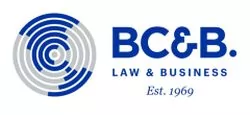By Oscar González-González
As of 1998 when the national market of generics was created in the health sector, in Mexico some of the pharmaceutical companies having a defined industrial property strategy have been damaged in their industrial property rights, since several "pirate" laboratories intended to manufacture the pharmaceutical drugs even if said pharmaceutical drugs were protected by a patent.
In order to understand the aforementioned, it is important to have clearly in mind two different concepts relating to the pharmaceutical drugs, namely: sanitary registration and interchangeable generic medicaments.
The sanitary registration is issued by the Mexican Health Authority just to certify the efficacy and safety of the drug. This sanitary registration is one of the several requirements that pharmaceutical drugs must comply with in order to carry out their commercialization. Furthermore, said sanitary registration is issued without prejudice to the validity and effect of other laws or the faculties of other governmental dependencies, such as the Mexican Industrial Property Law and the Mexican Institute of Industrial Property (IMPI).
The foregoing means that the Mexican Health Authority cannot reject the sanitary registration of any pharmaceutical drug to any laboratory, provided that said drug satisfies certain health requirements. Unfortunately, said sanitary registration is issued without taking into account whether the pharmaceutical drug is protected or not by a patent or a pending patent application.
On the other hand, it is well known that a pharmaceutical product is considered as a "generic medicament" when it is in the public domain, that is, when the patent protecting the same has lapsed; therefore, any laboratory may be able to manufacture said pharmaceutical drug.
According to the above, the Health Authority issues two publications in the Official Journal, one of them is the "Interchangeable Generic Medicaments Catalogue", which is periodically reviewed. The other publication refers to a list of "pharmaceutical drugs susceptible to be included in the above mentioned interchangeable generic medicaments catalogue", with the condition that the pharmaceutical drugs are not protected by a patent.
If a pharmaceutical drug appears in the list of medicaments susceptible to be included in the catalogue and subsequently complies with the biocompatibility tests, said pharmaceutical drug is included in the generic medicaments catalogue. As a result of the foregoing, the pharmaceutical drug may be manufactured by any competitor.
As you may see from the above, the real problem of the market of generics resides on two main facts: the Health Authorities issue a sanitary registration without taking into account whether the pharmaceutical drug is protected or not by a patent or by a pending patent application; and the same Mexican Health Authorities have not developed an appropriate communication with the IMPI, in order to ascertain when a pharmaceutical drug is protected by a patent or by a pending patent application.
In addition to the foregoing, another problem is the fact that the title of the patents related to pharmaceutical products is referred to the chemical names thereof and not to the commercial name of the active substances.
In view of the above mentioned circumstances, it is very difficult to determine whether a pharmaceutical product is protected or not by a patent in a short time.
As our firm has established a good communication with the Health Authorities, we have been able to assist our clients by means of a special procedure, so that said authorities may be aware or their patented pharmaceutical products, thus saving time and effort.
The content of this article is intended only to provide general guidelines related to this particular matter. For your specific circumstances, full specialist advise is recommended

